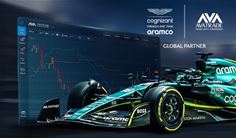Ford chairman says U.S. is unprepared to compete with China in electric vehicles: ‘They developed very quickly’
Ford Motor Co. Executive Chairman Bill Ford Jr. said the US is “not quite yet ready” to compete with China in the production of electric vehicles and said his company is taking an “all hands on deck” approach to prepare.
“They developed very quickly, and they’ve developed them in large scale, and now they are exporting,” Ford said in an interview on CNN’s Fareed Zakaria GPS. “They are not here, but they will come here we think at some point and we need to be ready, and we’re getting ready.”
China is poised to become the world’s No. 2 exporter of passenger vehicles, potentially reshaping the global auto industry and shaking up the dominance of its car trading partners and rivals. Overseas shipments of cars made in China have tripled since 2020 to reach more than 2.5 million last year, challenging traditional car exporters such as Germany.
Ford announced this year it will invest $3.5 billion in an electric-vehicle battery plant in Michigan, stirring political controversy by saying it’ll operate with technology and support from China’s Contemporary Amperex Technology Co. Ltd.
US Transportation Secretary Pete Buttigieg addressed the challenge in a Bloomberg Television interview Sunday, saying the US must take steps to cut into China’s advantage in EV batteries and that building the refining capacity for key materials is “addressable.”
The US has to ensure it is “positioning to have an economically sensible, environmentally sensible and geopolitically stable approach to how we’re going to get these vitally important elements in our economy that are only to grow in importance,” Buttigieg said.
Ford, great-grandson of founder Henry Ford, said he sees an opportunity for Ford engineers to understand the technology.
“All we are doing is licensing the technology,” he said. “That’s really important that our engineers gain that knowledge so we can eventually do it ourselves.”
Ford pushed back on the idea that US-based production will force prices to rise, arguing that making things in America matters and that manufacturing jobs have a multiplier effect that can lead to a stronger economy.
“Once you start to come down the cost curve, and you start climbing up the production curve, the cost will come down, and they’re coming down even as we are sitting here,” Ford said.
China is already deeply involved in electric cars in Europe, where the China-made vehicles sold are mostly electric models from Tesla Inc. Chinese-owned former European brands such as Volvo and MG, and other models like Dacia Spring or the BMW iX3, are also produced exclusively in China.




